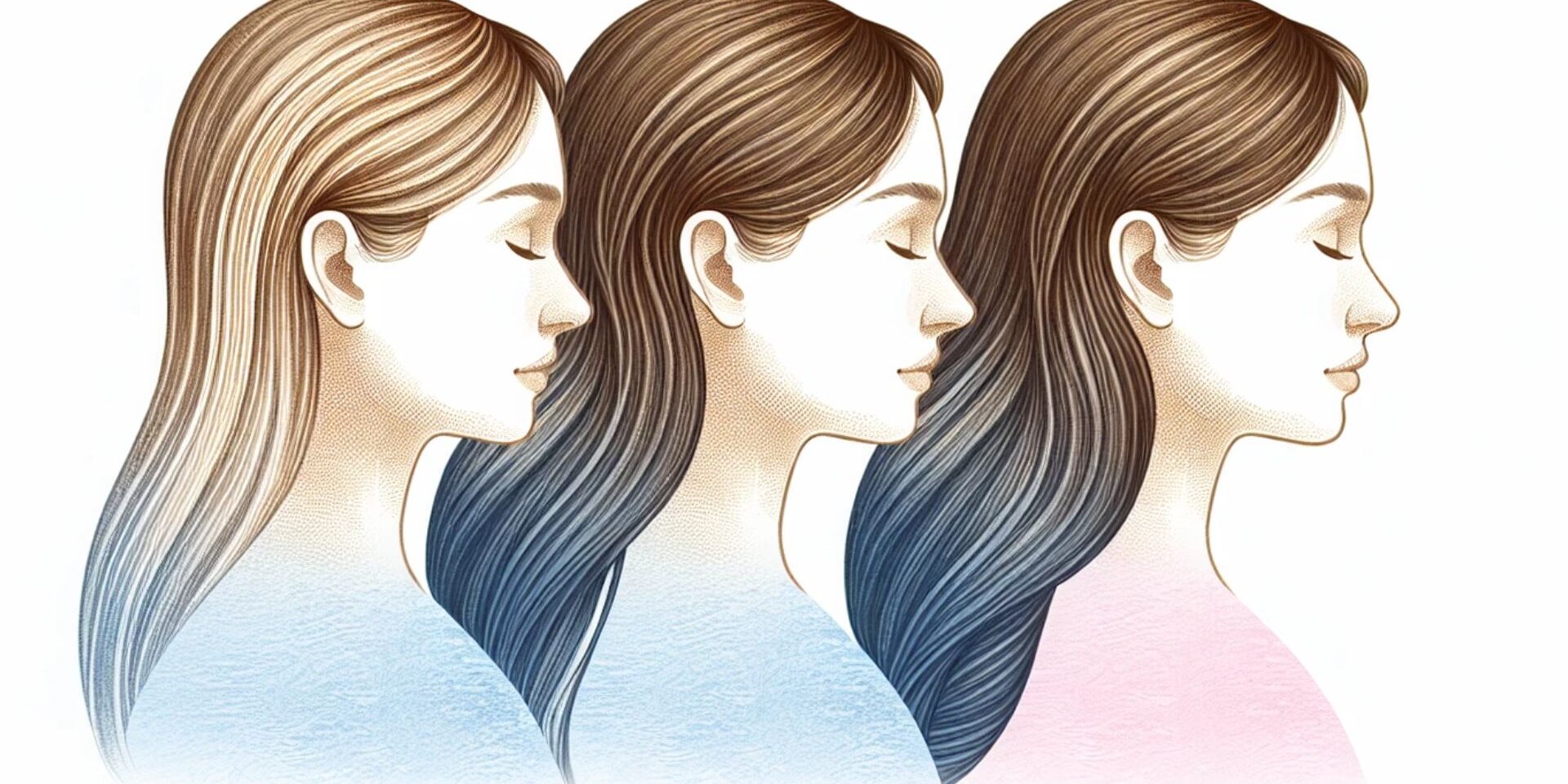When does postpartum hair loss end

When Will Your Postpartum Hair Loss Actually End?
Okay, so you're standing in the shower watching what looks like half your scalp go down the drain, and you're wondering if you're going bald at 30. I get it. Nobody prepared you for this particular postpartum surprise, right?
First things first - breathe. You're not losing your mind, and you're definitely not alone. This whole hair-falling-out thing? It's annoyingly normal.
So Why Is This Even Happening?
Remember during pregnancy when your hair was basically a shampoo commercial? Thick, shiny, growing like crazy? Yeah, well, that was all fake. Not fake exactly, but your hormones were basically holding your hair hostage - keeping strands that normally would've fallen out months ago.
Now that your baby's here, your estrogen and progesterone levels crashed harder than you did on the couch last night. All that hair you should've lost over the past nine months? It's making a dramatic exit. All at once. Fun times.
The Real Timeline (Not the Pinterest Version)
I could give you some neat little timeline, but every woman's different. That said, here's what usually happens:
Months 1-3 after birth: You're probably still riding high on those leftover pregnancy hormones. Your hair might still look pretty good. Don't get too comfortable.
Months 3-4: This is when most women start noticing. And by "noticing," I mean having minor panic attacks in the bathroom mirror.
Months 3-6: Welcome to hair loss hell. This is peak shedding time. You'll find hair everywhere - your pillow, the baby's clothes, probably in your coffee. It's gross, but it's temporary.
Months 6-9: Things should start calming down. Your drain won't look like a crime scene anymore.
Around baby's first birthday: Most women see their hair getting back to normal-ish. Notice I said "normal-ish" - it might not be exactly the same as before, but it'll be full again.
Some unlucky souls (especially if you're breastfeeding) might deal with this until 15 months postpartum. Sorry.
What Might Mess With Your Timeline
Breastfeeding can drag this whole process out longer. Thanks, prolactin. You're already tired, leaking milk, and now your hair's falling out for extra months. Motherhood is glamorous, isn't it?
If you're surviving on three hours of sleep, living off granola bars, and stressed beyond belief (so... most new moms), your hair might take longer to bounce back. Your body's basically prioritizing keeping you alive over making you look good. Fair enough.
Also, if you had amazing pregnancy hair, you might notice more dramatic shedding. It's like your hair is making up for lost time with interest.
Postpartum Hair Loss Statistics
| Aspect | Statistic/Timeframe |
|---|---|
| Women Affected | 40-50% of new mothers |
| Onset Time | 3-4 months postpartum |
| Peak Shedding Period | 3-6 months postpartum |
| Hair Loss Begins to Slow | 6-9 months postpartum |
| Full Recovery (Most Cases) | 6-12 months postpartum |
| Extended Recovery Period | Up to 15 months postpartum |
| Daily Hair Shedding (Normal) | 50-100 strands |
| Daily Hair Shedding (Postpartum) | 200-400 strands |
| Hair Follicles in Rest Phase | Up to 30% (vs. 10% normally) |
| Breastfeeding Impact | May extend hair loss duration |
| Return to Pre-Pregnancy Thickness | 85-90% of women by 12 months |
What Actually Helps (Beyond Pinterest Remedies)
Eat real food when you can. I know, I know - you're lucky if you remember to eat at all. But your hair needs protein and vitamins. Keep taking those prenatal vitamins if you're breastfeeding.
Stop being rough with your hair. Put down the brush when it's wet. Use your fingers or a wide-tooth comb. And please, for the love of all that's holy, stop pulling it back in the tightest ponytail known to humanity just because it's quick.
Consider chopping it off. Seriously. A shorter cut can make thin hair look fuller, plus it's way easier when you have approximately 30 seconds to get ready.
Try not to panic. Easier said than done, but stress makes everything worse.
When to Actually Worry
Most of the time, this is just your body doing its weird postpartum thing. But call your doctor if:
- You're still losing hair big-time after your kid's first birthday
- It's coming out in patches (that's different)
- You feel exhausted all the time, your weight's doing weird things, or you feel off (could be thyroid issues)
The Truth About Getting Your Hair Back
Here's what nobody tells you: your hair will grow back, but it might not be exactly the same. Some women end up with curlier hair, some straighter. Some find it's a different colour or texture. It's like your body's saying, "Surprise! You're a whole new person now."
But here's the thing - it will be full again. You won't be wearing hats forever (though honestly, hats are pretty convenient with a baby).
Your Messy, Real-Life Timeline
WhenThe Actual Reality
0-3 months Still coasting on pregnancy hair, feeling smug
3-4 months "Is this normal?" Googles frantically at 2am
3-6 months Hair everywhere. Vacuum is your new best friend
6-9 months Light at the end of the tunnel, maybe?
6-12 months Hair's coming back! You look human again!
Up to 15 months Still waiting if you're breastfeeding (ugh)
You're already dealing with everything else that comes with new parenthood, and now your hair's betraying you too. But this isn't permanent.
Six months from now, you'll be telling some other panicked new mother that yes, her hair will grow back, and no, she's not going bald. And you'll actually believe it because you'll have lived through it.
Your hair's just taking a little sabbatical. It'll be back.
